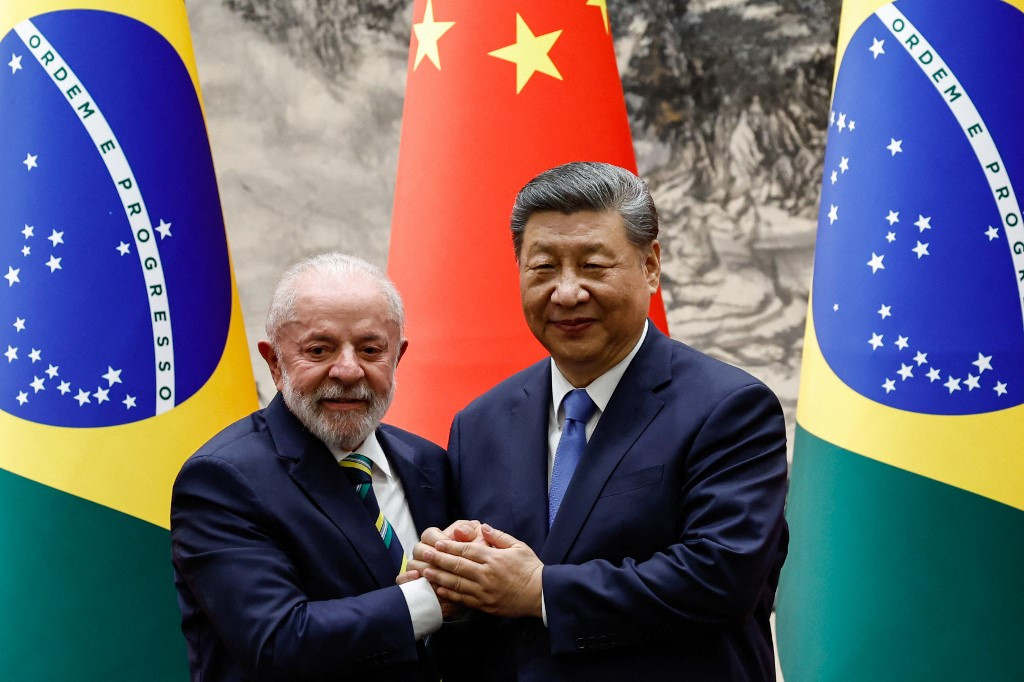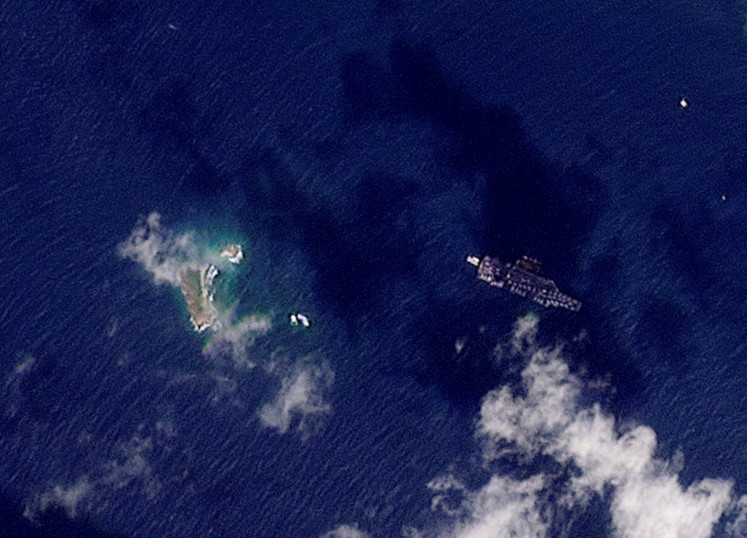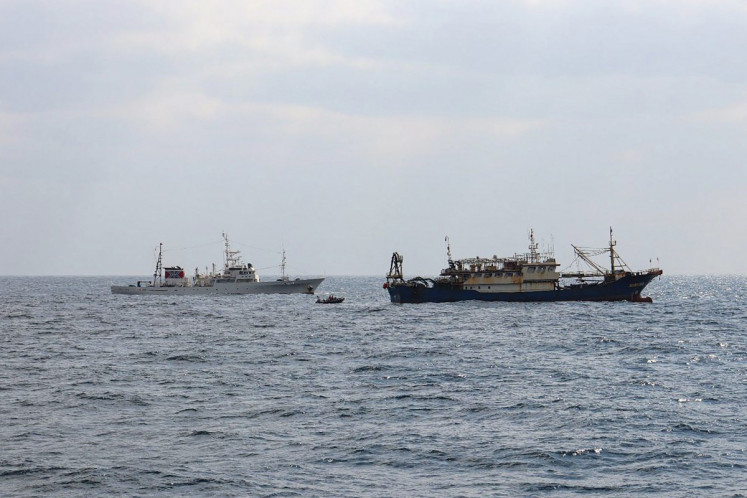Popular Reads
Top Results
Can't find what you're looking for?
View all search resultsPopular Reads
Top Results
Can't find what you're looking for?
View all search resultsXi says China, Brazil can model 'self-reliance' for Global South
Lula conducted a five-day state visit to China in May, when he told a forum for cooperation between Beijing and Latin America that his region did not want to "start a new Cold War".
Change text size
Gift Premium Articles
to Anyone
C
hina's President Xi Jinping told his Brazilian counterpart Tuesday the two countries could set an example of "self-reliance" for emerging powers, as trade and geopolitical challenges mount.
The two leaders have both sought in recent months to present their countries as staunch defenders of the multilateral trading system -- in stark contrast with US President Donald Trump's tariff onslaught.
Xi's call with Brazilian President Luiz Inacio Lula da Silva on Tuesday came just hours after Trump announced another 90-day pause to blistering tariffs on China.
It also followed indications from Lula last week he planned to speak with the leaders of India and China to consider a coordinated response to US trade measures.
Xi told Lula that ties between China and Brazil are now at an all-time high, according to state news agency Xinhua.
He said China would "work with Brazil to set an example of unity and self-reliance among major countries in the Global South" and "jointly build a more just world and more sustainable planet", according to Xinhua.
Xi added that "all countries should unite and firmly oppose unilateralism and protectionism", Xinhua reported -- a thinly veiled reference to US tariffs.
A statement by the Brazilian presidency said the phone call lasted about an hour, during which time Lula and Xi discussed a range of topics including the war in Ukraine and combatting climate change.
"Both agreed on the role of the G20 and BRICS in defending multilateralism", the statement said, referring to the Group of Twenty major economies and a bloc of emerging powers.
The leaders also "committed to expanding the scope of cooperation in sectors such as health, oil and gas, digital economy and satellites", the statement added.
Lula said last week he would initiate a conversation about how to tackle Trump's tariffs with BRICS nations, after Trump dubbed the group "anti-American" and threatened them with additional tariffs.
Beijing has worked in recent years to court Latin America as a way of countering Washington -- historically the most influential major power in the region.
China has surpassed the United States as Brazil's largest trading partner, and two-thirds of Latin American countries have signed up to Xi's Belt and Road infrastructure drive.
Brazil exports large quantities of soybeans to China, which -- as the world's largest consumer of the ingredient -- relies heavily on imports for its supply.
But Trump is seeking to encourage a shift in how China sources the commodity, used for livestock feed and to make cooking oil.
The US President said in a social media post Sunday that he hoped China will "quickly quadruple its soybean orders", adding this would be a way to balance trade with the United States.
Lula conducted a five-day state visit to China in May, when he told a forum for cooperation between Beijing and Latin America that his region did not want to "start a new Cold War".
China last week also showed Brazil support in resisting the "bullying behaviour" of imposing excessive tariffs, without naming the U.S.









